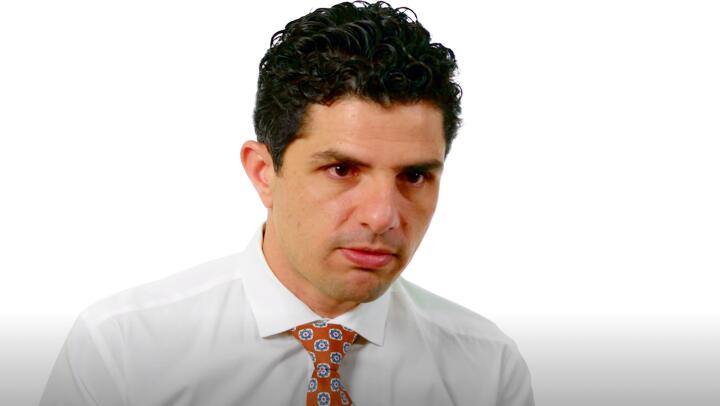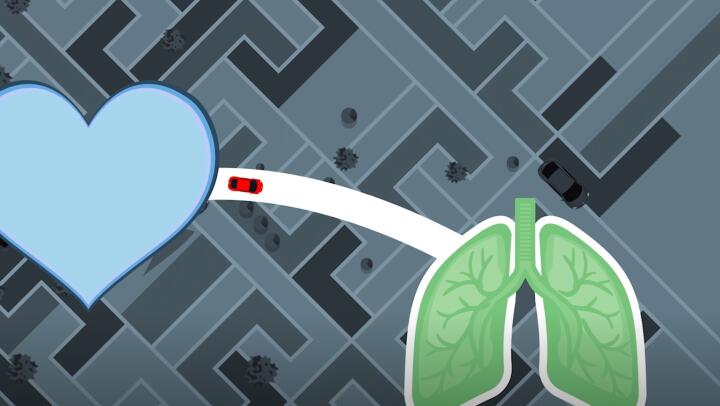Having too much LDL cholesterol in your blood can cause plaque to build up in the blood vessels, which can lead to life threatening conditions such as a heart attack or stroke.
Healthcare professionals do not tend to use the term hypercholesterolemia to refer to high levels of a second type of cholesterol, called high-density lipoprotein (HDL) cholesterol. People generally consider HDL cholesterol a “good” type of cholesterol that helps clear LDL from the body.
Typically, people do not have the problem of having too much HDL cholesterol. However, some people have a below-normal blood level of HDL cholesterol that can cause a higher risk of cardiovascular disease — especially if they also have too much LDL cholesterol.
The Centers for Disease Control and Prevention (CDC) reports that
According to the National Organization for Rare Disorders (NORD), FH affects as many as 1 in 250 people, making it one of the most common genetic conditions in the world. NORD also notes that because high cholesterol does not cause noticeable symptoms, many people may have FH without having a diagnosis.
This article discusses genetic causes of high cholesterol, as well as some risk factors, symptoms, and treatment options associated with inherited high cholesterol.
What is inherited high cholesterol?

FH, which is inherited severely high cholesterol, results from a
There are two types of FH:
- Heterozygous FH: This is the most common type of the condition. A child can inherit it from one parent who carries the mutated gene.
- Homozygous FH: This is less common because both parents must have the gene mutation and pass it on to their child. Although it is rarer, homozygous FH causes more serious disease and outcomes.
Cholesterol is a naturally occurring substance in your body. Your body needs it for certain functions, such as making hormones and helping with digestion. However, your diet can add extra cholesterol to the blood. Animal products such as meat and dairy, processed foods, and fried foods are some examples of sources.
Many people can manage high cholesterol by making changes to their diet or exercising more. However, people with FH are
Without treatment, high cholesterol levels can lead to atherosclerosis. This is a buildup of plaque along the blood vessel wall. When this plaque accumulates, it can slow or completely block blood flow. In some cases, pieces of plaque can break off and travel through the bloodstream to the heart or brain. This can result in a heart attack or stroke.
Learn more about the risks of high cholesterol here.
Risk factors
FH is one of the most common genetic conditions in the world, affecting about 1 in 250 people. Statistics from the National Human Genome Research Institute suggest that about
The Institute goes on to say that people who inherit the gene mutation from one parent (heterozygous FH) have a 50% chance of passing the mutation to a child. Those who inherit the mutation from both parents (homozygous FH) will pass one copy of the mutation to each of their children.
Research cited by NORD indicates that some groups of people have higher rates of FH than others. Those groups include:
- Lebanese Christians
- Afrikaners from South Africa
- French Canadians
- Ashkenazi Jews of Lithuanian ancestry
NORD also notes the importance of cascade screening, which refers to the screening of close family members in a stepwise fashion after someone receives an FH diagnosis. A 2017 article in
A variety of factors — including shared family behaviors, environments, and lifestyle habits —
The National Heart, Lung, and Blood Institute also lists several conditions that contribute to a person’s overall risk of high cholesterol levels. Those conditions include:
- chronic kidney disease
- diabetes
- hypothyroidism
- lupus
- overweight and obesity
- polycystic ovary syndrome
- sleep apnea
If high cholesterol runs in your family or you have reason to believe that you may be at risk of FH, speak with a doctor or nurse practitioner about testing and monitoring. Receiving early treatment can help reduce the risk of complications related to high LDL cholesterol.
Symptoms to watch for
High LDL levels are not obvious to most people and generally do not cause any noticeable symptoms. However, the
- Xanthoma: This is a buildup of fat under the skin that appears in nodules, particularly around the joints, hands, feet, and buttocks. A
common site Trusted Source PubMed Central Highly respected database from the National Institutes of Health Go to source is the Achilles tendon. Xanthomas at the Achilles tendon can trigger tendonitis. - Xanthelasma: This is a similar fat buildup, but it develops above or under the eyelid. It affects about 5% of people with FH, according to NORD.
- Corneal arcus: This refers to a white, blue, or gray ring around the edge of the cornea that is due to cholesterol deposits in the eye. NORD notes that about 30% of people with FH develop this symptom. The Organization adds that corneal arcus is primarily a diagnostic tool for younger people (under 45 years old) with FH, as these rings can also form naturally as people age.
- Angina: Also known as chest pain, this can be a symptom of heart disease.
If you notice any of these symptoms, particularly if you have a family history of high cholesterol or had an early-in-life heart attack, contact a doctor. They can perform a physical exam and request laboratory testing to make an accurate diagnosis and discuss treatments.
Treatment options
The
For people with heterozygous FH, the first step of treatment includes reducing fat in the diet and increasing exercise. Your doctor may refer you to a nutritional or dietitian for guidance on developing a food plan to meet your goals.
In addition to lifestyle changes, the Genetic and Rare Diseases Information Center notes that people with FH often need medication to lower their LDL cholesterol levels.
Drugs for high cholesterol
Statins are most commonly the first-line treatment for high LDL cholesterol. A 2020 review in
The
- rosuvastatin (Crestor)
- atorvastatin (Lipitor)
- fluvastatin (Lescol)
- lovastatin (Mevacor)
- extended-release lovastatin (Altoprev)
- simvastatin (Zocor)
- pravastatin (Pravachol)
Statins may be effective on their own, or your doctor may combine them with other medications. The
- Bile acid sequestrant resins: These work by preventing bile acid in your intestine from being absorbed into your blood. Since your body needs bile acid, your liver then uses the cholesterol in your blood to make more, resulting in lower LDL levels. Examples of these drugs include cholestyramine (Questran) and colestipol (Colestid).
- Fibrates: These may increase HDL while lowering triglycerides, which are another type of fat in the blood that can cause atherosclerosis. Examples of fibrates include fenofibrate (Antara) and gemfibrozil (Lopid).
- Niacin: This is a B vitamin that helps reduce the production of blood fats in the liver. Niacin is available as a prescription treatment and as a dietary supplement. Because the latter can have serious side effects, it is important to talk with a doctor before starting any type of niacin.
- Ezetimibe (Zetia): This is a cholesterol absorption inhibitor. It lowers LDL cholesterol by reducing how much cholesterol the small intestine can absorb. The AHA notes that ezetimibe is the most commonly prescribed non-statin medication for treating high LDL cholesterol.
- Omega-3 acid fatty ethyl esters (Lovaza): These are a form of omega-3 fatty acid that helps decrease triglycerides. They are available as a supplement, over-the-counter, or by prescription, at a higher concentration. A doctor can provide guidance on which type is right for you.
- PCSK9 inhibitors: These medications increase your body’s ability to remove LDL cholesterol from your blood. One example of a PCSK9 inhibitor is alirocumab (Praluent).
People with homozygous FH, which is less common than heterozygous FH but more severe, may require additional treatments. These can include LDL apheresis, which is a procedure to separate and remove LDL cholesterol from the blood, or a liver transplant, in rare cases.
Without aggressive treatment, people with homozygous FH are at high risk of experiencing a fatal cardiac event by the age of 30 years.
Summary
FH is a common genetic condition that causes elevated levels of LDL cholesterol. This increased LDL cholesterol can lead to atherosclerosis, which is a buildup of plaque in the blood vessels.
The condition often has no initial symptoms, which can delay diagnosis. People with risk factors, such as a family history of high cholesterol or an early-in-life heart attack, should receive routine screening for high LDL cholesterol.
People with FH can usually manage the condition by adopting healthy lifestyle habits, such as eating a low fat diet and getting plenty of exercise, and taking LDL cholesterol-lowering medications.
Early diagnosis and treatment can help prevent complications such as heart disease, heart attack, and stroke.





















